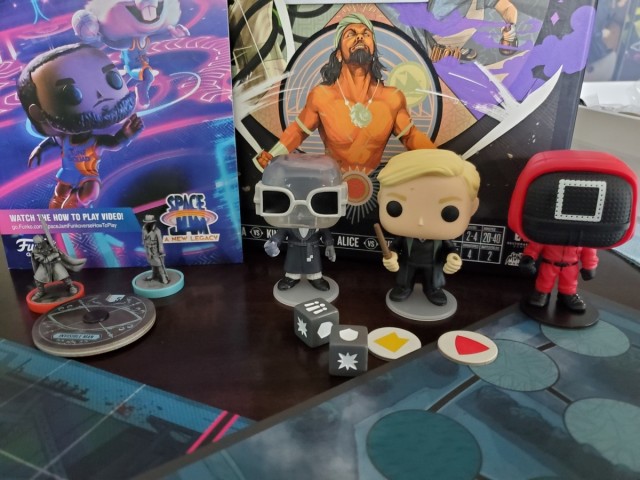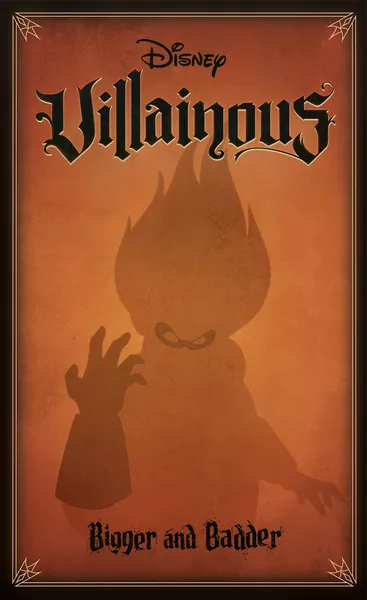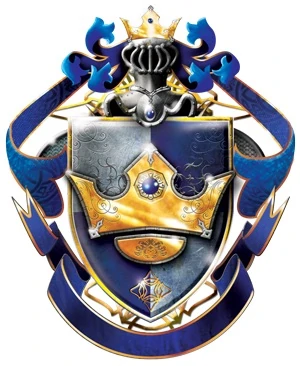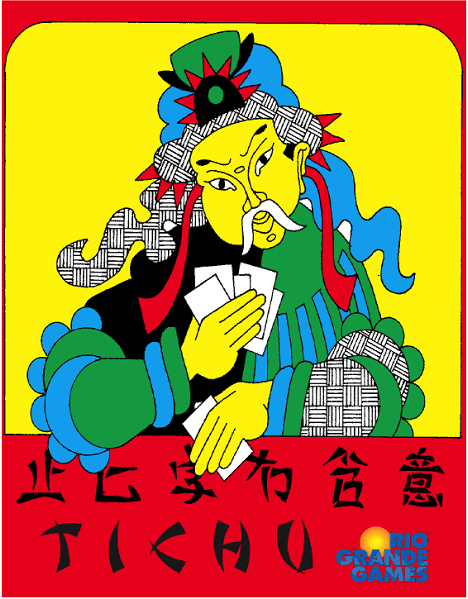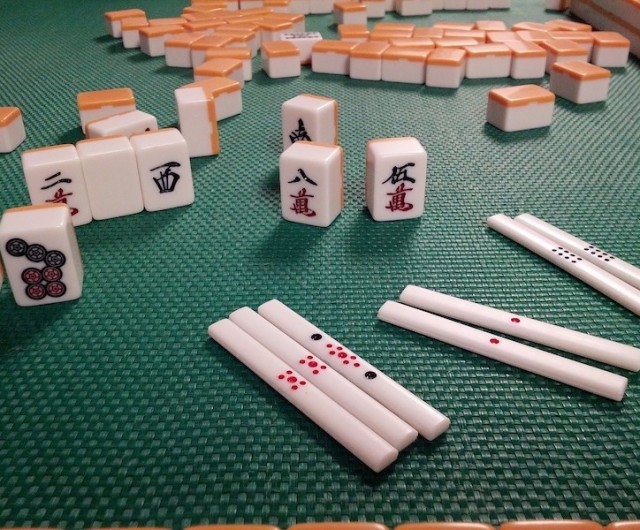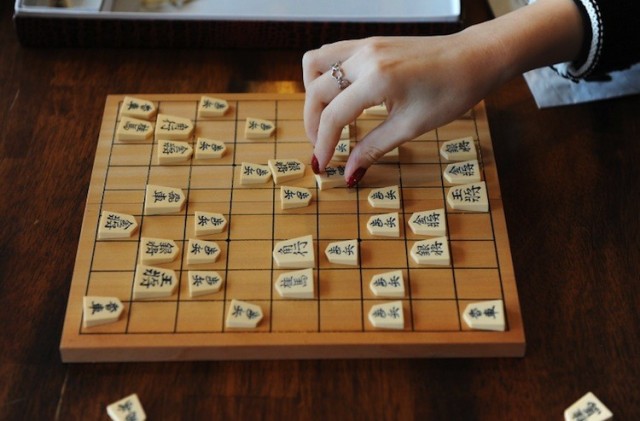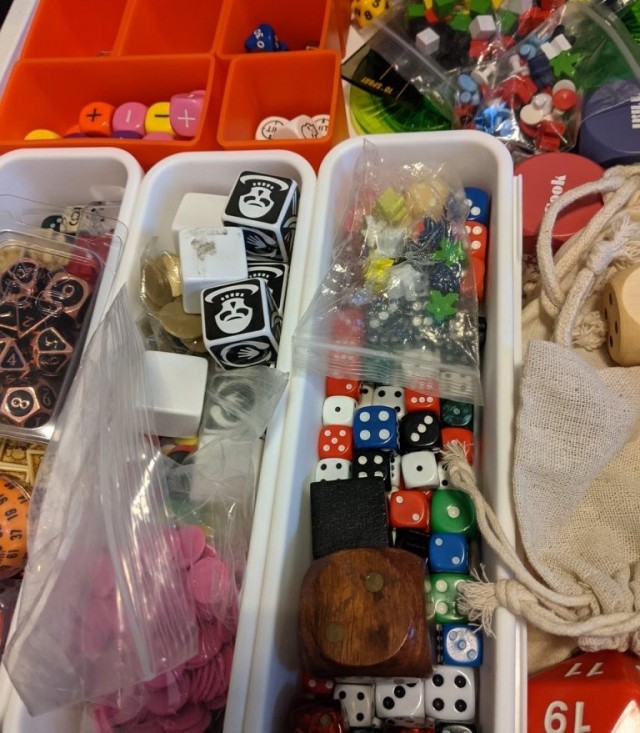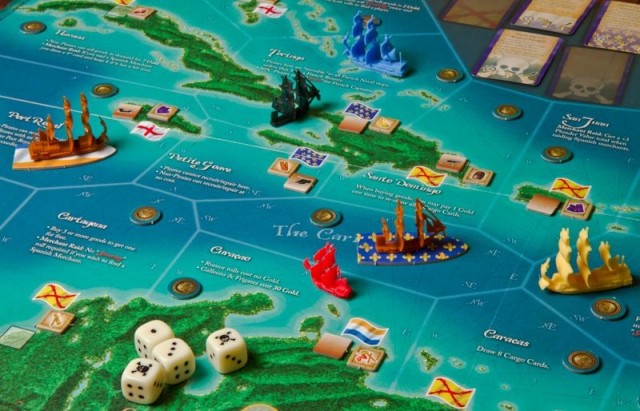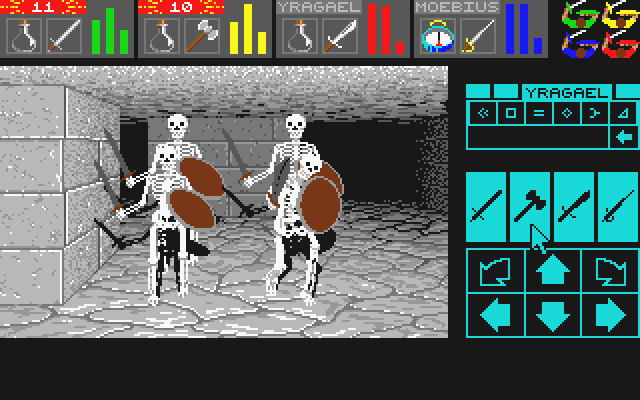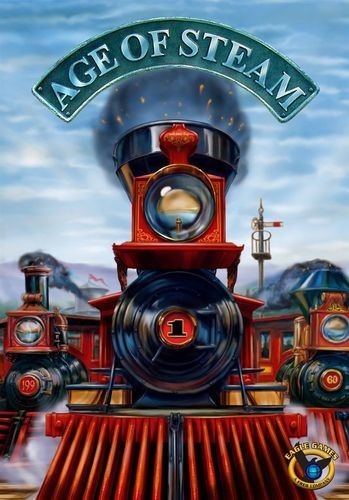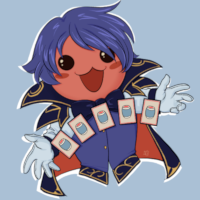Why don’t classic or “new classic” games like Cosmic Encounters, Cyclades, and Roll for the Galaxy work for many people?
Wade: What do you do when you introduce a tried and true game, what is probably considered an “Evergreen” by the board game community, and it flops with your group?Not to derail our discussion before we even start but I think the majority of “flops” have to do with the group you are playing with.
Marc: That’s almost certainly the largest factor. It’s that way with many kinds of entertainment. Titanic is one of the most popular and successful movies of all time. I thought it was contemptibly bad. Not just average: BAD. Who makes actors like Kate Winslet and Leo DiCaprio look like high school-aged summer stock? (/tangent. Sorry.) So, the fact that Cosmic Encounter may not resonate with a group of players isn’t necessarily an indictment of the game. It could be any number of factors: Most or all of those people don’t like that type of game. It wasn’t presented well. You switched to it after playing something radically different. The group came to game night with different expectations. Or any combination thereof or beyond.
For example, I always present Cosmic Encounter as “the foundation of modern non-German board game design.” You want “variable player powers”? This is the progenitor. The fact that it explicitly presents a setting that embodies the modern “Golden Rule” of design: “If a card says something contrary to the rules, the card is right” is another notch in that belt. This is a game that uses rules as a guideline, rather than a Bible. But… not everyone is ready for that. Most people grew up with games that spelled out specific dos and don’ts. You can’t break the rules! That’s cheating! So, when presented with the game based on that concept, where everyone does something different (Asymmetric play!), and where social interaction (wheeling, dealing, begging, bribing, filching(!)) is almost a requirement to enjoy or even play the game, a lot of people will retreat, rather than engage. It can be a tough ask, especially when they’re playing with others who have some experience with it and can get a quick handle on the chaos while the new players are still muddling about and trying to figure out how their power even works. One of FFG’s greatest innovations was the color system for the various aliens. When introducing it, I usually forbid the red aliens unless I’m certain that the players in question are hardcore gamers.
Wade: You HAVE to play with people who have a desire to win. This hand holding,walking across the finish line together, shared victory bullshit has got to go. But my wife refuses to “hurt” her kiddos in (most) games.
Marc: Eh. I don’t agree. While I would definitely prefer to win on my own, I’ve been in enough shared victories to know that the reason we defaulted to that was because the mix of alien powers was such that we’d be doing a tit-for-tat for the next hour, which might open the door for someone else to win. Shared victory is still victory, yo.
Wade: Okay, I oversimplified my explantation. My problem isn’t Cosmic Encounter with a single passive, it is when the majority of the players are quite happy to be non-aggressive or non-confrontational. For me, one of the things that appeals to me about CE is that you can cut that deal, make a truce, both agree to play to a tie… and then watch someone stab the other person in the back.
Marc: Oh, yeah. I’m all about that. You can be as ruthless as you want (and some powers, like Grudge and Locust, encourage it.) I’m just fine with shared victories because sometimes it’s just time to switch to new aliens, rather than end up handing the game to a third party who you’re about to get a shared win over. Some powers, like Parasite, basically can’t win without that option. Take the W, however you can get it.
Wade: I remember when I introduced Roll for the Galaxy. I had played Race for the Galaxy a number of times, so I was familiar with the mechanics but, as I explained the rules to everyone, I realised just how “Front Loaded” it is with Rules/Actions if you have never played Race for the Galaxy.. I could literally see everyone’s eyes glazing over as I explained all the actions you could take “First you assign your dice, then after revealing them you can Explore, Develop, Settle, Produce, or use your Ship to sell an item and the price is based on the color of the….”
It is one of the few games that I literally could not get back to the table because it crashed so hard. I’m sure my teaching had something to do with it and everyone fumbling around for a couple of rounds not exactly sure what to do didn’t help. Maybe you NEED that Race for the Galaxy experience to grasp and enjoy Roll for the Galaxy. A familiarity with the general concept would have went a long way to captivating the players. As it is, I’m just happy it was a game I borrowed instead of bought.
Marc: I’m confronted with this fairly regularly, as some games are just rules dense, even if their gameplay is relatively fluid. Cry Havoc is a great example. You have four factions that function quite differently, with different tech upgrades and random skill cards. Plus, you have the awesome combat system, which is quite a departure from most DoaMs and is almost a mini-game unto itself. I don’t bring that out unless I’m certain of two things: 1. These are people that really enjoy DoaMs. 2. These are regular gamers who can roll with several pages of rules. Then there are the games that have expansions that kinda make them work better. Your reviews of the Champions of Midgard expansions detail this perfectly. The back end of Champions games slows down a lot and it’s mostly about smashing trolls and kinda grinding through it. Adding Valhalla changes that, as there’s suddenly a whole new aspect to losing dudes and taking advantage of that for more action on the main board. But that’s also a whole other set of rules that you have to explain at the outset, so that people hopefully understand that it’s a better game with them included. Some people are willing to accept that. Others, not so much. That’s why it’s sometimes fun to play things like Theseus, where it’s the same weird ruleset, even if all seven factions play it differently. I won’t, however, use Pandora with new people, since it just adds to the confusion.
In total contrast, I dump everything on new Wiz-War players. It all works the same. Just read your cards and do what they say, whether it’s creatures, totems, curses, or utterly random effects. Just blow stuff up and keep running. You’ll get it.
Wade: I loaned Cyclades to one of my board gaming friends for a weekday meet up that I, unfortunately, was unable to attend due to work. I have to admit, I was excited for them to play it. I literally checked my phone throughout the night to see if he had sent me any updates on how it was going. I got a text as they were about to play then… well… nothing for two hours until he texted and said: “Everyone hated it but I’m willing to give it another shot.” I was crestfallen! How could they possibly hate this game? Sure, you could say it wasn’t your type of game or wasn’t what you expected (I really expected the latter), but hate it? Why? What went wrong? “Well, Jimmy was winning but after he was eliminated….” “Whoa, whoa, whoa! Wait a minute. There is no player elimination in Cyclades!?!?” (“There’s no crying in baseball!”) Possibly the only really fiddly rule in Cyclades is that you can’t attack a players last island unless you can win the game, which wasn’t what happened.
Marc: Ha! They really took that whole combat thing to heart, didn’t they? What a strange phenomenon in an auction game… The usual reaction to Cyclades is that there isn’t enough bloodshed, not that someone took one to the face (Not the face!) I’m horribly reluctant to hand things off like that unless I know that someone has played before; typically for reasons that resemble what you ran into. Plus, it’s kinda awful for a bunch of newbs to wade through a rulebook together and then try to have a decent game. I usually read rulebooks and check for info on the Interwebs before I ever bring a game to a group because I really want that first experience to go off well. Even with that much preparation, my introductions of Root, just as an example, have turned people off to that game entirely a couple times already, largely because it takes multiple plays for people to really get a handle on it. I don’t know that I’d entirely slot Cyclades in that category, but I guess it’s possible. There are certain strategies (that we’ve covered before) that take time to osmotize.
Wade: I thought I had given them everything they could possibly need to play Cyclades easily. I had laminated turn order sheets for every player that included explanations of all the creature cards. Oddly enough, I had the exact reaction to Root that you described when playing the first time. I knew that I needed a few more times to get a real grasp of it but I ran into one of the strangest gaming experiences (or non-experiences) when I wanted to switch from the Aerie to something different when they wanted to play on a different day. “We only want players experienced with the faction they are playing.” Wow. So I guess I’m not playing. I don’t doubt the awesomeness of Root, but I currently have a hard enough time getting my favorite DOAMs to the table, much less teaching my group a game that every faction is so different and that I don’t have the experience with.
Marc: Root is the hallmark for that, mostly because of its complexity in terms of how the different factions play and interact. But they’re not the only ones. Just the other day we were talking in one of the long threads on the forum about how divisive the Tiny Epic series often is with many players. I love them and own almost all of them, but many people detest them for a wide variety of reasons. My theory is that, like Root, most of them take a few plays to really crack the code on how they function. Rarely do I find people getting a real handle on the poker play in Tiny Epic Western with their first play and the game seems opaque to them. Similarly, but conversely, Tiny Epic Kingdoms seems too simple for them to really engage with and people will often suggest that one of the three victory conditions is broken/OP compared to the other two. What they usually haven’t realized is that you need to focus on one of them, but you can’t simply ignore the other two. But that takes experience, in the same way knowing when to use the buildings for Western does. The same thing happens with Cyclades, where one half of the players will think it’s an auction game and the other half will think it’s a DoaM. They’re actually both right, which is part of what makes it so good, but it often takes experience with it to figure that out.
Wade: Then you have games like Machi Koro. I’ll be the first to admit this game annoys me. I don’t know how it can be considered a “gateway” game because it highlights the flaws that I find niggling in board games. First off, don’t use the out of the box rules. You want to use the Harbor Expansion variant rules? I guess, I don’t know. Both are pretty much exasperating to me. Either it’s a longer, more swingy version of the game or a shorter bland and boring game. I really thought I was missing something that made this game fun or interesting, so I made the mistake of throwing more money at it and picked up the Harbor Expansion. I just fail to see the fun of watching someone roll, looking over your cards to see if anything was activated, thinking it was, and then realizing that card only activates on your turn and not others. Then, sitting back and doing it all again and again.
Marc: I’ve actually never played it (thankfully?) Sounds dreadful, similar to my recent first (and last) experience with Camp Grizzly.
Wade: There are certain game mechanisms that I know I, personally, am going to have an issue with. It takes a damn good Co-op for me to actually like it. Auztralia and Shadows over Camelot come to mind.
Marc: Ugh. I largely avoid co-ops these days. The lone exceptions are Spirit Island, because of the variety it provides, and Big Trouble in Little China, because it’s too cool to be resisted. Many among my regular groups are similar. Every time I see someone pulling out Sentinels of the Multiverse, I tend to walk the other way. I just don’t want to engage most of them because I’d rather have the give-and-take that only humans (or very advanced computers) can provide. I think I burned out from too many sessions of Arkham Horror and Pandemic. I loved AH, but the story doesn’t vary that much. Pandemic’s mechanics just grate on me these days. I loved the idea of Pandemic: Fall of Rome because Rome(!) and because it sounded a bit more intriguing than just playing whack-a-mole… but, no, it was still Pandemic. Three turns in, I wanted it to end. I have similar negative thoughts about Shadows Over Camelot. Been there, done that. Won’t go back. I’m even resistant to picking up new “many vs one” games. I have Fury of Dracula. I have The Others. I have TMNT: Shadows of the Past. That’s hidden player, campaign, and combat, respectively. What else do I need?
Wade: You mention Sentinels of the Multiverse. I was really hyped to play it when everyone was saying “It really makes you feel like you are playing a superhero!” Instead, it was round after round of “Take down that floating platform… again.” If that is what being a superhero is like, I think I will pass. If I remember correctly, I sent it out as part of the Secret Satan Christmas swap last year. To whoever ended up with that… sorry. Some other mechanisms are very hit and miss for me. Take Hidden Role/Betrayal Mechanisms, for example. The Resistance is highly regarded and often talked about, but IMHO there is no game there. There is no information to suss out, no way to make someone tip their hand. If you want to have a betrayal mechanism in a great game, I’m all for it (Shadows over Camelot has one, but even then it is kind of sketchy) but if that IS this game, it isn’t something I want to play. Pandemic had its 15 minutes of fame with my core group but the shine wore off almost as quickly. It went into the trade pile after about 10 games, which made me kind of wish Pandemic Legacy had been out when we actually wanted to play Pandemic. 12 (successful) games and done would have been about perfect.
Marc: The traitor mechanic is a tough one because it often depends on the makeup of your group. I’m automatically suspected of being the traitor in any and all situations, even when I’m not actually one. People just assume that, because I win all the time, I must be the “bad guy” or something. But the real problem is usually the traitor player being able to endure the psychological pressure of holding that role. You have to play straight and be able to talk your way out of situations. If you can’t, then the game becomes pro forma, because everyone knows who the traitor is and the suspense is taken out of it. Sometimes mechanics can ruin that, too. Battlestar Galactica was a perfect example of this. Some people could handle being Cylons. Others couldn’t. If they were too easily found out, the threat was often minimized and they could easily be planned around. But other times the power of the Cylon players to mess with things could just become too oppressive and people would feel like they’d gone from a challenging situation to a hill too steep to climb. I liked the game, mechanically, but I tried it three times with my group and it just did not take, so I traded it.
Wade: I wish I could narrow down what causes a game to fail. It can be as casual as Codenames or as complex as Roll for the Galaxy. I know some games are going to be a hard sell. I tried to ease into the hidden movement of Fury of Dracula by using Whitehall Mystery. But after a half dozen games of Whitehall, I know there is no way Fury of Dracula is going to fly with my family group. I guess that makes it an “event” game for me where I enjoy a once-a-year experience with people who also love it.
Marc: But I think you’ve hit on one of the major factors right there:
- Know your group. Know what games they usually respond to. My friend, Margot, loves games, but she despises DoaMs. Even the famous Root, supposed to have attracted so many non-wargame types with its cutesy theme, failed with her. Minutes after we started, I could see the despair in her eyes, so I don’t bring them to her house when we decide to get a night in. (Strangely, she loves Theseus and doesn’t consider it a DoaM. (It’s kinda not.)
- Map out rules explanations beforehand. I’m such a fanatic that I sometimes envision rules explanations while I’m falling asleep at night. “OK. This is Tiny Epic Kingdoms. It’s an area control game. The active player takes one action on this card and marks it with a shield token. Everyone else gets to take that same action OR gather resources, which I’ll explain in a moment. The first action is Patrol…”
Wade: (Mumbling to self) “ Firefly is a pick up and deliver game. The actions you can take are (sing-songs) Fly, Buy, Work or Deal.
Marc: Ahem.
3.Don’t hand off games unless you’re certain the person you’re handing off to understands both 1 and 2.
After that, if they still don’t like Wiz-War, well, sometimes the infidels can’t be saved. Gotta burn’em (and all their magic stones!)
 Games
Games How to resolve AdBlock issue?
How to resolve AdBlock issue? 